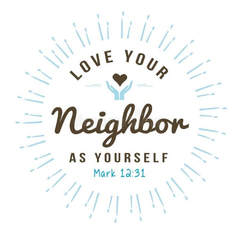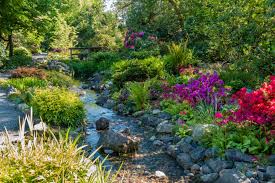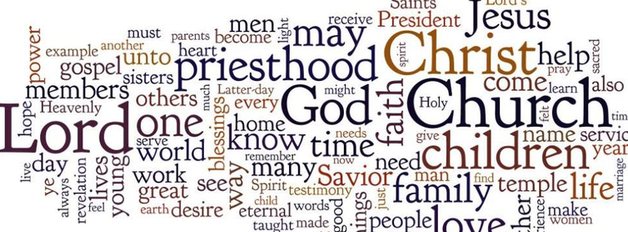|
By Elder Beverly Tipton Hammond
I am so excited about the Peace Walk and Block Party this weekend! We are taking this community for Christ, as we first saturate the streets with prayer, praise and worship! Pastor Jeff Nerhbass and his wife Cindy have a heart for God’s people and desire to share the love of God and power of salvation through Jesus Christ as a fresh wind of the Holy Spirit is blowing in this season! Minister Judy, Pastor Herrera and myself are here to support their vision and watch God transform lives in a new and living way! They have faithfully served this community for over 20 years and now God is doing a “new thing”! In the Book of Isaiah 43:19 it says, “Behold, I will do a new thing; now it shall spring forth; shall ye not know it? I will even make a way in the wilderness, and rivers in the desert.” Come to Jesus and receive His refreshing through the power of the Holy Spirit. If you are thirsty come and drink from a well that never runs dry, that is the Spirit of God that restores, cleanses and heals you when you give your heart to Jesus Christ! With lovingkindness we extend God’s love for all people! For God so loved the world that He gave His only begotten Son, that whosoever believes in Him shall not perish but have everlasting life. We come in the authority of the Name that is above every name, Jesus Christ, the Son of the living God and destroy the works of Satan in this region! We come against every work of darkness destroying lives and families in the Name of Jesus! We decree salvation to every household in our communities. We declare deliverance from addiction to drugs and alcohol, depression, suicide, rejection in Jesus Name! We bind the spirit of murder, rape and abuse in Jesus Name! We decree salvation and peace and life to all those who have no hope! You say “there is no other way”! Jesus is calling you! He says, “I am the way and the truth and the life. No one comes to the Father except through me.” John 14:6. If you feel like you are at a dead end, you are really standing before an open door! God Himself is inviting you to come, all who are weary and heavy laden with problems you cannot solve come! Declaration over this community – “Dry Bones Live!” We decree a revival that causes dead things to come back to life! So shall my word be that goeth forth out of my mouth: it shall not return unto me void, but it shall accomplish that which I please, and it shall prosper in the thing whereto I sent it. Isaiah 55:11. By Minister Judy Stack “The Lord will…satisfy your needs in parched places…and you will be like a well-watered garden, like a spring of water whose waters never fail.” – Isaiah 58:11 It’s hot out. Wicked hot. Dangerously hot. The kind of heat that kills. If you are outside, it is not long before you start to understand about parched places. Quickly, you become (despite the humidity—or partly because of it) a “parched place.” Your energy fails. You get impatient and irritable. Your enthusiasm, your joy, your good will get dried up. In the verse from Isaiah above, the prophet talks about “parched places” for God’s people. He sees that God’s people are longing to flourish. To be like a well-watered garden—growing, productive, and full of life—not just for themselves but like spring of water that overflows and streams forth, giving that life to others. That kind of flourishing was all wrapped up for the ancient Jews and the writers of the Old Testament (including Isaiah) in the idea of shalom. The Old Testament was written in Hebrew, and this Hebrew word shalom is often translated as “peace.” The idea behind the word certainly includes what we usually think of when we think of peace—lack of war and violence, calmness, gentleness and not anger—but it includes more as well! Shalom is, ultimately, everything being in right-relationship as God intended. It is everything being in harmony, all the parts of God’s world being cared for, all the people treating each other as God would want them to—there is no pain but only healing, no lack but only abundance, no anger or frustration or disappointment but only joy and trust and peace. And when that happens there is flourishing! As we gather this Saturday for our Peace Walk and block party, we hope to bring people of our neighborhood together to care for each other, to support each other, to build ties of trust and community in the face of violence and fear and the things that tear apart the connections that hold our community together. Because peace—the harmony that God intended for God’s world—is the key to our flourishing. And God has promised, when we care for one another in these ways, he will “satisfy your needs in parched places” and “you shall be called the repairer of the broken places and the restorer of the streets to live in” (Isaiah 58:12).  By Francisco Herrera Pastor Jeff asked me to share my thoughts about why I feel God has called me to be among the people of Gethsemane Lutheran Church - thoughts which would then be shared in a blog post and used as sort of a teaser for my upcoming residency this week. So without further ado… Why do I think God has called me to be with you at Gethsemane these next few months? I'm a Lutheran seminarian who is also a teacher, and as someone who spends a great deal of time talking about God, the more and different kinds of people I spend my time with, the better I will be in my God-talk, and spending the next few months hanging out with everybody in Camden and Lind-Bohanon will be a very good way for me to develop precisely this skill. This is the first major reason why I think God called me here. Though I've talked about God a lot with a lot of people - an activity which makes me a thing some people like to call a theologian - this is my first time actually having the title ‘theologian’ officially attached to my name, and I have your community to thank. Even greater, your church has a lot that makes it unlike any other. You have a lot of great programs here, with a wonderful school for the children on the block and distribution centers for the needs of the neighborhood - just to name a few. This means that there is a lot of God-work, along with God-talk, that happens through your congregation – and I’m looking forward to listening in on some of it. It's pretty awesome, what you do here, and if I may also add - it's also extremely Lutheran. Because Brother Martin made it very clear, the grace that we receive because of Jesus does not free us merely to make us feel content but self-satisfied – rather, it frees us to better serve the neighbor. How deeply does Luther say we must serve our neighbor, you may be asking? In his elaboration on the Fourth Commandment, in the Small Catechism, he says that we are to be so concerned with our neighbor that we must even be mindful of the amount and quality of their "Nahrung" – their food or sustenance – so that they don’t suffer from malnutrition. So here, we are to love our neighbor so much that we even keep an eye on what they eat! Pretty intense and intimate, if you ask me. And from what I've seen happen in your community on Fridays, something tells me that Dr. Luther would definitely smile on your ministries. As for the second major reason why I think God called me here for the summer? Because in addition to learning and being influenced by the people of Gethsemane, I also hope to teach a bit of something that my fellow theologians like to call ‘constructive theology.’ As God calls us into more passionate service of the needs of our communities, at some point we have to start seriously thinking about how our lives have influenced the ways that we think about things like Jesus, like the Resurrection, like God, even on something seemingly so basic as what it means to do ministry. Being called by God eventually means being called into intense relationship with the people around you, and when that happens it's really important to understand how your personal God-talk may or may not make that relationship building either easier or more difficult. So, to do this, I'm going to have a series of chats called “God-Talk and Me-Talk,” where folks have a chance to sit down and take a good close look about the who, what, where, when, why, and how of their thoughts on things like sin and death, the church, even how we read scripture. Conversations like these can be a little hard at times, but they are also terribly exciting - and it is my goal to use some of the insights from our time together to help other seminarians learn how to better talk about these things with the people in their churches. Because let's face it, a lot of seminaries may do a good job educating pastors-to-be, but they don't always do a good job showing pastors-to-be how to share what they've learned with the people they're called to serve. So after my time among you, I hope to be able to change that a little bit. And I look forward to all the singing and praying and dancing and eating and living we’ll do along the way! By Minister Judy Stack It is Monday. After the morning food give away, as Pastor Jeff and I walk to get some lunch a few blocks from the church, he talks about the neighborhood. “Did you hear about the shooting? [I hadn’t.] Reports say a man was shooting a gun in the air and police showed up and he didn’t put down the gun, so they shot him. We’re hoping things don’t get tense…” We walk. “See that house? I think 15 kids live there. I don’t know how many adults. I have tried for years to connect with those folks. Sometimes some of the kids come to Sunday school for a while, then they turn 14 and drop out of Sunday school and join gangs. I don’t know how to reach them…”
We eat lunch. We talk about the community and its needs. As we are wrapping up, I say, “Remember when we were students at Luther and we’d go out for coffee and talk theology and look around at the people in the coffee shop and say, ‘I wonder what God is up to here….’? Twenty-five years later, we’re doing the same thing.” “We are.” We toast with our soda bottles: “Cheers!” But it is a solemn toast. Later in the afternoon at the church, an African-American woman comes in the office: “Hey, Pastor Jeff, I’m Doneesh*. I’m the cousin of the man who was shot. We’ve been having vigils at the place where he was shot, but people get kinda hungry. I wonder if you have some hot dogs or something…” As we walk through the church to get some food to send, we hear a familiar theme: the story initially reported in the media is not what witnesses say really happened. Her cousin was a good man, a family man. He was minding his own business. His kids were there with him. “The BLM folks want to come and protest, but we told them no. We don’t want all that hubbub.” As Doneesh prepares to leave, she says, “My cousin, he didn’t have a church, but if we was to have a service for him….” “Yes,” says Jeff. “Of course you can have it here.” My mind goes back to the question at lunch: what is God up to here? Here in this community, and in this church as it is part of the neighborhood. Why does Doneesh come to a place like Gethsemane in this moment? I think about all the uncertainty of this story. Who is telling the truth—media, police, bystanders? Is Doneesh telling the truth—telling the truth about her cousin, telling the truth about there being vigils or is she just trying to get some food? And who has the best interests of those affected here in mind and can be trusted—BLM, police, social workers, neighbors, a church? I realize that the whole story is really about trust. Who can we trust? Whom do we distrust? When trust erodes, community disintegrates. Trust is the glue that holds community together—whether it’s a neighborhood or a family or a couple or a church or a people and its civic institutions (like police and courts and schools). Kids join gangs looking for trust, looking for people they can count on. We’re all looking for people we can count on. I believe Doneesh came to Gethsemane because the neighborhood knows that it can trust us. That, as a church, we will show up—show up with food and with prayer and with the willingness to gather people to mourn together and grasp hope. That they can count on us. Because we believe—we trust—that God is up to something. In the individual lives of the people of the neighborhood and in the community as a whole. We’re looking for that. Listening for that. Trusting in that work of the spirit and building trust—trust in each other and in God and God’s work in us and through us. *Not her real name. |
Archives
March 2020
Categories |


 RSS Feed
RSS Feed
